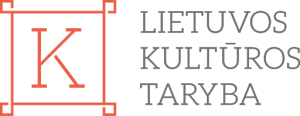#14 WHAT CITY?
Reading a city: Reflections of ideologies in the urbanscape
Why the talk is inspiring?
In this lecture we will talk about probably the most easily identified – political-ideological level of the city code. Main question – what are the aspirations which fuel and what tools are used by the different political doctrines and regimes to influence and change physical and symbolical image of the city? While trying to answer this question, it will be necessary to understand who is the “author” of the city’s ideological text? What are his aspirations and goals? How ideological messages are created in the city? What “genre” of text do some cities represent? What does it mean? And finally, what impression does it leave for the reader?
2014
Speaker
Rasa Čepaitienė
How the speaker is exceptional?
Dr. Rasa Čepaitienė is a cultural historian, research worker at Lithuanian Historical Institute, a professor of Vilnius University. She has published several monographs (“Laikas ir akmenys. Kultūros paveldo sampratos moderniojoje Lietuvoje”, “Conservation of the cultural heritage in the global world”), a lot of her texts, articles and audio lectures have been published widely in Lithuania and abroad. Her scholarly interests are cultural heritage conservation theories, world and Lithuanian historiographies, cultural (especially post-communist) memory studies.
RECOMMENDS TO READ
Atminties daugiasluoksniškumas: miestas, valstybė, regionas
Alvydas Nikžentaitis
Why the book is worth reading?
What is culture of memory? How does it work in urban environment? In this book a search for these answers is pursued by analyzing influence of culture of memories to the urban spaces of the cities, countries, regions. Reader is presented with categories like politics of history and what influence did they play to the society of Lithuania and surrounding areas.


